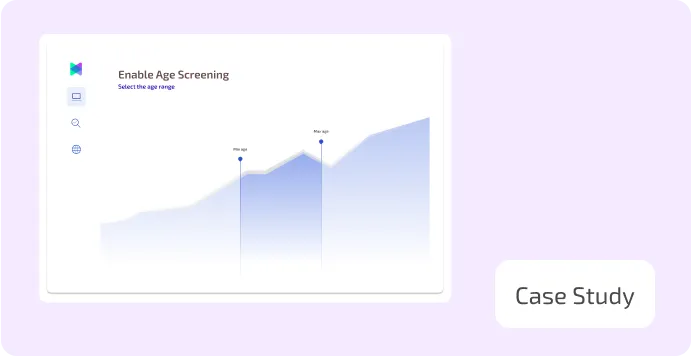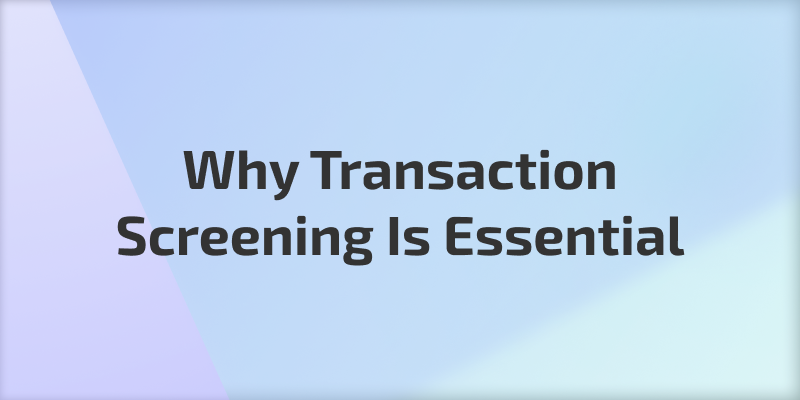.webp)
Published on
June 3, 2025
What is an Ultimate Beneficial Owner (UBO)?
In this story

Comply quickly with local/global regulations with 80% less setup time
.svg)
.svg)
The Ultimate Beneficial Owner (UBO) is the actual person or group who really controls or owns a company, even if other entities are involved or other names are listed. Understanding what is an UBO reveals who truly holds the power. It’s about being transparent and clear about the real decision-makers.
Also, identifying who the UBO is, enables Know Your Business (KYB) and Know Your Customer (KYC) checks. Amongst other things, by law, banks, investment companies, and insurance firms must identify and verify the ultimate beneficial owners, with whom they engage and with whom they transact business.
This rule is meant to stop or even prevent serious crimes like money laundering and financing terrorism before they happen. If UBOs are hidden, it can let people use companies for illegal activities. Today however, different AML software tools help companies track and check UBOs against lists of sanctions, watch lists, and Politically Exposed Persons (PEP) lists.
Who is the Ultimate Beneficial Owner (UBO)?
According to the Financial Action Task Force (FATF), the Ultimate Beneficial Owner (UBO) is the person who actually owns or controls a company, trust, or similar entity.
In simple terms, a UBO is someone who holds a major share, usually 25% or more, either directly or indirectly. But ownership is just part of it. The UBO is also the person who makes the big decisions and has the most control over how the entity operates.
The FATF recommends identifying UBOs to prevent illegal activities like money laundering and terrorism funding. Knowing who the UBO is helps authorities track financial flows and stop these crimes.
The Financial Action Task Force (FATF) provides detailed guidance on the definition and identification of Ultimate Beneficial Owners (UBOs) in its recommendations and reports. You can find the relevant information in FATF's Recommendation 24, which deals with the requirements for identifying and verifying the UBOs of legal entities. Also, FATF Guidance on Transparency and Beneficial Ownership document offers detailed guidance on how countries and businesses should implement the FATF recommendations regarding beneficial ownership.
Why Knowing the Ultimate Beneficial Ownership Matters
Ultimate Beneficial Ownership is all about identifying who really benefits from a company’s operations or gains from a company’s actions. Knowing what is a beneficial owner, helps companies follow the law and avoid problems like fraud or money laundering. It makes sure everything is clear and legal.
Here’s why knowing the Ultimate Beneficial Owner (UBO) matters:
- Stopping Financial Crimes: Finding out who the real owners are helps stop crimes like money laundering and funding of terrorism. The Financial Action Task Force (FATF) says it’s important to know who truly controls and benefits from a company.
- Following the Law: Many countries have rules that require businesses to show who their UBOs are. These laws help companies follow anti-money laundering (AML) and anti-terrorist financing rules.
- Being Open and Honest: When businesses share UBO information, they become more transparent. This helps build trust with clients, investors, and regulators. It also makes it clear who is really in charge of a company.
- Managing Risks: Knowing who the UBO is helps businesses handle risks better. It helps them check out potential partners, clients, and investments more carefully.
Comply quickly with local/global regulations with 80% less setup time
.svg)
.svg)
UBO Legislation: What You Need to Know
Laws require companies to identify their ultimate beneficiary owner and UBO compliance is mandatory in many regions. If you don’t understand what is UBO in business, you risk violating these laws. Companies must disclose who actually owns them to maintain transparency.
How Banks Identify UBOs
Banks use strict procedures to find out who the ultimate beneficial owner is. They apply KYC (Know Your Customer) processes to dig into ownership details. KYC UBO checks involve gathering all relevant information about who controls a company, which is crucial in UBO banking to prevent illegal activities.
UBO’s Role Across Different Industries
In every sector, understanding what is a UBO is key to maintaining honesty and regulatory compliance. For example, in finance, UBO finance links every transaction to a known UBO. In banking, UBO compliance helps prevent financial crimes. Knowing what is a UBO in business is important for transparency across all industries.
Why Conduct Beneficial Ownership Checks?
Beneficial ownership AML checks are crucial for any business aiming to stay compliant. It’s important to understand what a beneficial owner is and conduct thorough checks to identify the UBO. These checks help prevent illegal activities and protect your business from legal risks. Knowing what a beneficial owner means can significantly reduce potential issues.
Challenges in Identifying UBOs
Finding the ultimate beneficial owner can be complicated due to layered ownership structures. Different countries have varying rules, making UBO compliance even more challenging. Companies need solid processes to accurately identify the UBO beneficial owner and ensure they comply with regulations.
In other words, figuring out who the Ultimate Beneficial Owner (UBO) is can be tough and challenging because companies often have complicated ownership structures with many layers, and this makes it hard to find out who really controls them.
In some places, there isn’t enough clear information about who owns or runs a company, and this causes transparency issues. Also, different countries have their own rules about UBO disclosure, which can be confusing to follow, let alone that privacy laws in some areas limit access to ownership details.
Sometimes, people use shell companies or nominee directors to ownership information. Not only that, old or incorrect company records can also lead to mistakes in identifying the UBO.
Best Practices for UBO Compliance
To ensure UBO compliance, follow these steps:
- Implement robust KYC UBO procedures and keep them updated.
- Regularly update UBO records.
- Use AML software to streamline UBO identification.
- Work closely with regulators to ensure compliance.
- Continuously monitor ownership structures to catch any changes.
Risks of Ignoring UBO Compliance
All companies and firms put a lot of effort into raising money and maintaining a positive reputation, but once a company does not put much effort into knowing who the real owner is, it should not only be ready to lose its hard-earned money and damage its reputation but also face legal trouble.
To manage ultimate beneficial ownership effectively, companies must be diligent in verifying ownership details. This involves keeping records current and using AML software for accuracy.
Identifying the ultimate beneficial owner often requires digging through layers of ownership. For instance, a company may be owned by another, but the true owner is the individual behind it all. Knowing what is a UBO in business helps you uncover who’s really in charge, ensuring transparency and legality.
Wrapping Up
Knowing who the Ultimate Beneficial Owner (UBO) is, is crucial for any company that wants to be transparent and follow the law.
Strong procedures to track ultimate beneficial ownership help avoid risks and ensure legal compliance. Therefore, when a company follows UBO standards and uses modern tools, it protects the business and keeps operations running smoothly.
Comply quickly with local/global regulations with 80% less setup time
.svg)
.svg)

How Aseel reduced onboarding time by more than 87% using FOCAL
Learn how FOCAL empowered Aseel to achieve new milestones.
.svg)
.svg)
Mastering Fraud Prevention: A Comprehensive Guide for KSA and MENA Businesses
51% of organizations fell victim to fraud in the last two years, don't be caught off guard, act proactively.
.svg)
.svg)
Featured blog posts
AI-Driven Precision in Fraud Risk and AML Compliance
.svg)
.svg)

.svg)
.png)




.svg)


.webp)


.webp)
.webp)


.svg)

_FastestImplementation_Small-Business_GoLiveTime.png)

_HighPerformer_Small-Business_HighPerformer.png)
_Leader_Leader.png)



%20(1).webp)